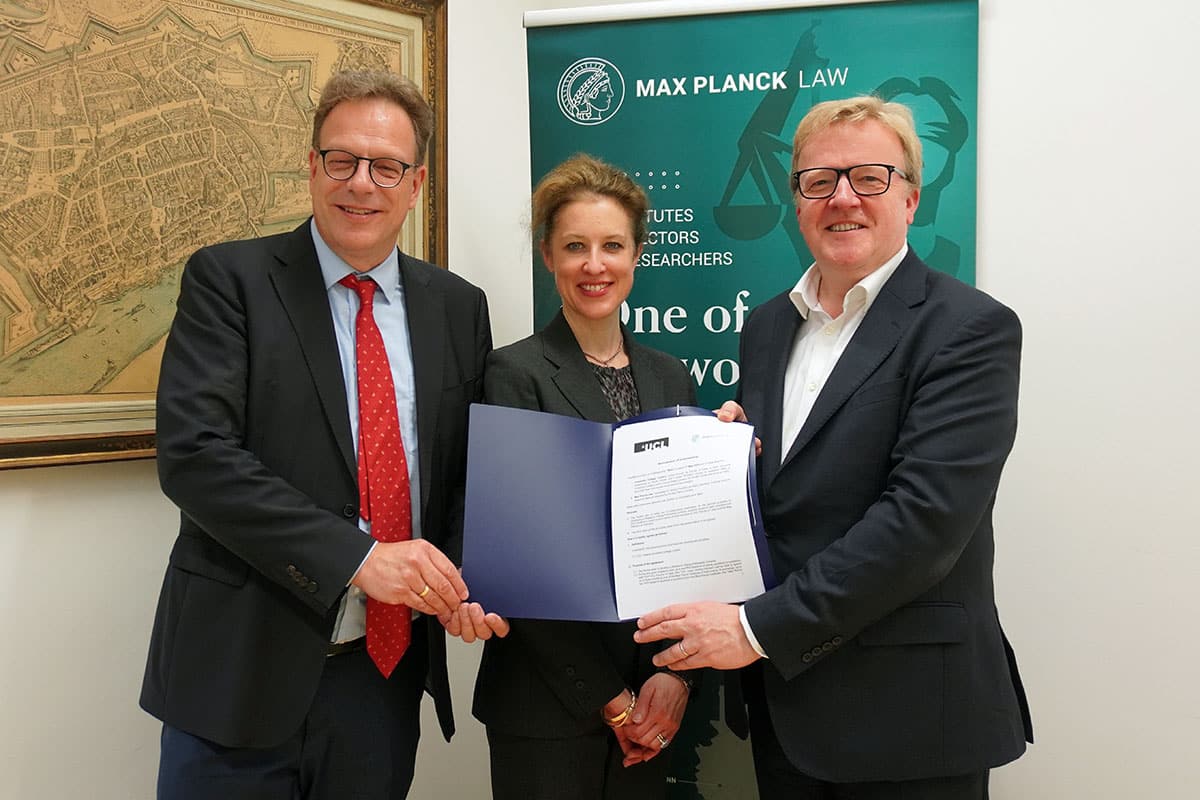Max Planck Law is pleased to announce the establishment of a new Research Visiting Fellowship scheme in collaboration with the UCL Faculty of Laws. This scheme marks a significant step in fostering academic exchange and research collaboration between the two esteemed institutions.
The scheme was formalized in Frankfurt on 17 May 2024, during a UCL delegation visit to mainland Europe. The delegation was led by Vice-Provost (Research, Innovation & Global Engagement), Professor Geraint Rees, and included Professor Eloise Scotford, Dean of UCL Laws, along with colleagues from UCL Global Engagement.
Under this new scheme, up to two PhD research students, postdocs, or academic staff from UCL Laws will have the opportunity to spend up to three months at any of the Institutes of their choice within the Max Planck Law network. In return, up to two PhD research students orpostdocs from within the Max Planck Law network will be able to spend up to three months at the UCL Faculty of Laws.
Professor Stefan Vogenauer, Director at the Max Planck Institute for Legal History and Legal Theory said: ‘We are delighted and honoured that UCL Laws has chosen to enter into an exchange agreement with Max Planck Law. It will be an unrivalled opportunity for our researchers to spend some time at one of the finest law schools, and we look forward to receiving their outstanding scholars for research stays at our Institutes.’
Professor Scotford said ‘Our partnership with Max Planck Law opens doors to unparalleled access to specialized legal communities for our researchers. This valuable opportunity strengthens the intellectual ties between our institutions consistent with our outstanding research environments.’
This new visiting fellowship scheme is a valuable addition to our existing network of exchanges, which includes partnerships with distinguished law schools in Melbourne, Singapore, Cambridge, and the European University Institute (EUI).
